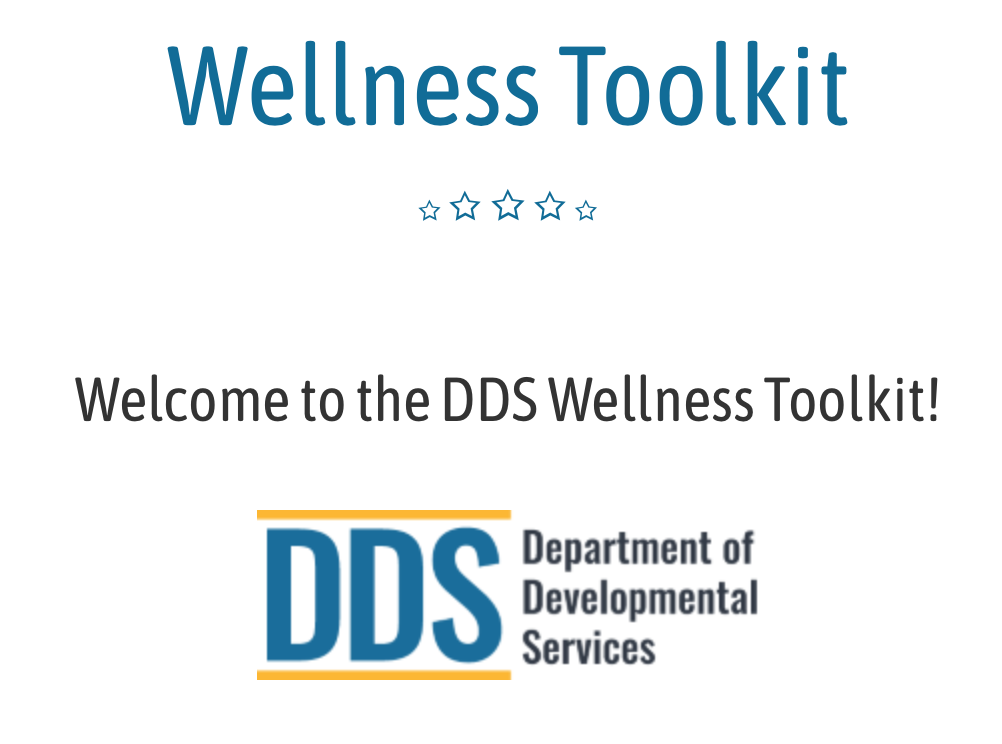General Purchase of Services Policy Statement
Lea en Español (Read in Spanish)
한국어 읽기 (Read in Korean)
Hayerenov gartank chapanishneruh (Read in Armenian)
The Frank D. Lanterman Regional Center may purchase services and supports for children and adults with developmental disabilities or children under the age of 3, or under the age of 5 with provisional eligibility, who have conditions that put them at risk of developmental disability ("clients") when such services and supports will:
- Prevent or alleviate the developmental disability
- Prevent the dislocation of a minor client from his or her home or the dislocation of an adult client from his or her home community
- Enable the client to approximate the pattern of everyday living of a non-disabled person of the same age; lead to a more independent, productive and typical life in the community; or permit interaction with persons without disabilities in positive, meaningful ways. (Welfare & Institutions Code § § 4501, 4502, 4646, subd. (a), 4648, subd. (a)(1).)
The determination of which services and supports are necessary for a client shall be made through the Individual Program Plan / Individualized Family Service Plan ("IPP/IFSP") process. The determination shall be made on the basis of the needs and preferences of the client or the client’s family and shall include consideration of a range of service options proposed by the IPP/IFSP participants and the cost-effectiveness of each option in meeting the goals stated in the IPP/IFSP. (Welfare & Institutions Code 4512, subd. (b).)
For children under the age of 3, services are provided in accordance with the California Early Intervention Services Act s. (See California Code of Regulations sections 52000 to 52175, especially section 52000(b)(16); Government Code section 95000 and following.)
Use of Generic Resources
Before purchasing a service, the Regional Center shall pursue all other sources of available services or funding as well as the voluntary provision of service and support to a client, such as the natural support of family, friends and associates. The Regional Center shall not purchase a service that would otherwise be available from Medi-Cal, Medicare, the Civilian Health and Medical Program of the Uniform Services (CHAMPUS, Tri-Care), In-Home Supportive Services, California Children’s Services, private insurance, or a health care service plan when a client or family meets the criteria for this coverage but chooses not to pursue that coverage. If the client or family seeks medical or dental services from a third party payer, benefit program or other health care service plan and is denied the service, the Regional Center shall not purchase the service unless the client/family provides documentation of the denial and the Regional Center determines that an appeal of the denial does not have merit.
If it is determined that another agency or individual should be responsible to purchase or provide a service, the Regional Center will assist the client and family in obtaining the needed service. While the Regional Center is assisting the client and/or family in pursuing funding from another agency or individual, it may purchase needed services and supports until that agency or individual purchases or provides the services and supports. Any retroactive funding received from an outside agency or individual should be applied to offset the payments made by the Regional Center during the time that such service or support was being pursued. (Welfare & Institutions Code § § 4648, subd. (a)(8), 4659, 4685, subd. (c)(6) Family Code § § 3900 and 3910.)
Parental Responsibility
In identifying a minor client’s service and support needs, the Regional Center shall take into account the parents’ responsibility to provide for the minor client as they would for a child without a disability. For minors in out-of-home placement, the Regional Center shall look to the parents to meet their share of costs for the minor’s care. (Welfare & Institutions Code § § 4659, 4685, subd. (c)(6), 4783 and 4784, Family Code § 3900.)
Parent Involvement in Services
Because of the critical nature of parent participation to the success of therapeutic interventions to minors, parents receiving such services are expected to be actively involved in their child’s treatment. This includes, at a minimum, involvement in development of the plan, regular attendance at sessions facilitated by the provider, and implementation of intervention techniques between sessions.
Development, Implementation and Evaluation of the Plan
Services and supports may be purchased to meet a client’s needs associated with a developmental disability when they will accomplish all or part of the goals and objectives contained in the client’s IPP/IFSP. The individualized plan shall be prepared jointly by one or more representatives of the Regional Center, including the service coordinator, the person with a developmental disability, the person’s parents, legal guardian, or conservator, where appropriate, and any other persons invited by the client or his or her parent, guardian or conservator. Requirements of the IPP/IFSP include the following:
- Each IPP/IFSP shall contain a statement of goals, based on the client’s needs, preferences and life choices.
- Each goal shall be associated with specific, time-limited objectives that are stated in terms that allow measurement of progress or monitoring of service delivery.
- The goals and objectives should maximize opportunities for the client to develop relationships, be part of community life in terms of housing, work, school and leisure, increase control over his or her life, acquire increasingly positive roles in community life and develop competencies to pursue these goals.
- Each service and support must be identified in the IPP/IFSP and must be associated with one or more objectives targeted for the client.
- The IPP/IFSP shall specify the type and amount of each service and support to be purchased by the Regional Center or obtained from other resources and shall identify the providers of service responsible for each objective.
- To the extent possible, services and supports should be culturally appropriate, integrated with mainstream community life, and promote client and family empowerment.
- There shall be regular review and evaluation of the IPP/IFSP to determine if planned services have been provided, if objectives have been achieved within the times specified, and if the client and his or her family are satisfied with the IPP/IFSP and its implementation. (Welfare & Institutions Code § § 4512, subd. (b), 4640.7, 4646, 4646.5, 4648 and 4750.)
Continued Funding
Continued funding of services and supports may be authorized only if the client, the client’s parent, legal guardian or conservator, where appropriate, and the Regional Center agree that reasonable progress has been made toward meeting the client’s IPP/IFSP objectives. (Welfare & Institutions Code § § 4648, 4685, 4750.)
Selecting a Service Provider
Unless an individual is a participant in the Self-Determination Program or utilizing services available through Participant Directed Services, services and supports may be purchased only from providers who are vendored or otherwise authorized by the Department of Developmental Services (DDS) to provide such services and supports. Providers must also:
- Have a rate of payment for vendored or contracted services provided by DDS
- Have been issued a prior authorization by the regional center for the purchase of the specific service for the client involved
- Adhere to the quality of care standards set forth by the Regional Center, DDS, the Welfare & Institutions Code and the California Code of Regulations for the service or support provided.
The Regional Center shall consider the following when selecting a provider of client services and supports:
- The provider’s ability to deliver services and supports which will accomplish the specified IPP/IFSP objective
- The provider’s ability to deliver services that are innovative and cost-effective
- The provider’s success in achieving the objectives in the IPP/IFSP
- The ability of the provider to develop and facilitate services in natural environments with natural supports
- The ability of the provider to empower clients and their families to make choices in their own lives, including where and how they live; their relationships with people in the community; and the way they spend their time, including education, employment and leisure
- The ability of the provider to implement services and supports which result in a more independent, productive and normal life for the client
- The provider’s demonstrated commitment to requiring the full participation of parents of minor clients in development and implementation of the service plan
- Where appropriate, the provider’s achievement of accreditation, licensing, or professional certification
Purchase of Least Costly Service
If services of comparable quality are available from different providers who are equally able to accomplish all or part of the client’s IPP/IFSP, the least costly of these services shall be selected. Cost shall include the cost of both the service and the transportation. In determining cost, the availability of federal financial participation shall be considered. The client shall not be required to use the least costly provider if it will require moving to a more restrictive or less integrated service or support.
Purchase of Unproven Services
The Regional Center shall not purchase experimental treatments, therapeutic services, or devices that have not been clinically determined or scientifically proven to be effective or safe, for which risks and complications are unknown, or which are considered by recognized professionals to be potentially harmful to clients. Experimental treatment or therapeutic services include experimental medical or nutritional therapy when the use of the product for that purpose is not a general physician practice.
Equal Protection
Persons with developmental disabilities have the same legal rights and responsibilities guaranteed all other individuals by the Constitution and applicable laws of the United States and the state of California. Services shall be purchased for eligible clients without regard to race, color, creed, national origin, citizenship, sex, age or condition of physical or mental disability. No otherwise qualified person, by reason of developmental disability, shall be excluded from participation in, denied the benefits of or subjected to discrimination under any program or activity which receives public funds. (Welfare and Institutions Code § 4502.)
This policy statement shall be considered together with the specific purchase of service standards adopted by the Regional Center for each type of service. The types of services addressed in these standards are not all inclusive. Individual circumstances related to a developmental disability may warrant additional services not specifically stated. Exceptions to the Purchase of Service guidelines, to the types of services or to the specific standards for each type of service may be made when considering individual needs. Any such exception shall be reviewed by the regional center executive director or designee.
Denial of Services
Anyone aged 3 or older who has applied for regional center services, or who currently is receiving regional center services, can appeal regional center decisions they do not agree with. If the Regional Center denies any service or seeks to stop, or reduce current services, the client, or his or her representative can appeal the proposed decision. Additional information and assistance can be provided by the client’s service coordinator, and this link will direct you to the revised Lanterman Act Appeals Information Packet.
For infants or toddlers under 3 years of age, families may request a due process hearing for services denied or reduced by requesting form DS 1802 in English or Spanish.
Posted 05.22.23






